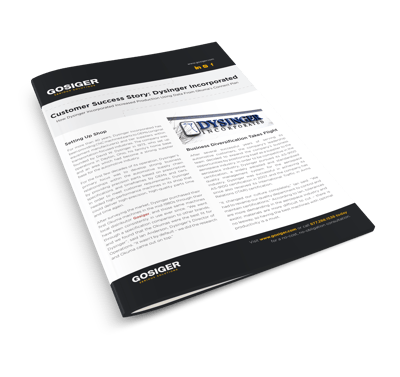For more than 40 years, Dysinger Incorporated has been providing CNC machined parts to OEMs (original equipment manufacturers) and tier suppliers within transportation-focused industries. The company was founded by David W. Dysinger in 1973, who set up operations in Dayton, Ohio, his family’s home base and an area which had become a strong supplier base for the automotive industry.
For the first few decades of its operation, Dysinger’s primary focus was to develop strong business relationships within the automotive supply chain by providing precision parts based on prescriptive specifications and timeframes by OEMs and tiers. In order to meet customer requirements, Dysinger needed high-performance machines in its shop that could deliver high-precision, high-quality parts time and time again.
After surveying the market, Dysinger purchased their first Okuma machines in the mid-1980s through their local distributor Gosiger, and those same machines have been consistently in use ever since. “We went through a specification comparison to other brands, and we found that the Okumas were the best fit for Dysinger”, said Ian Anderson, Dysinger’s Director of Operations. “It wasn’t by default – we did the research and Okuma came out on top.”
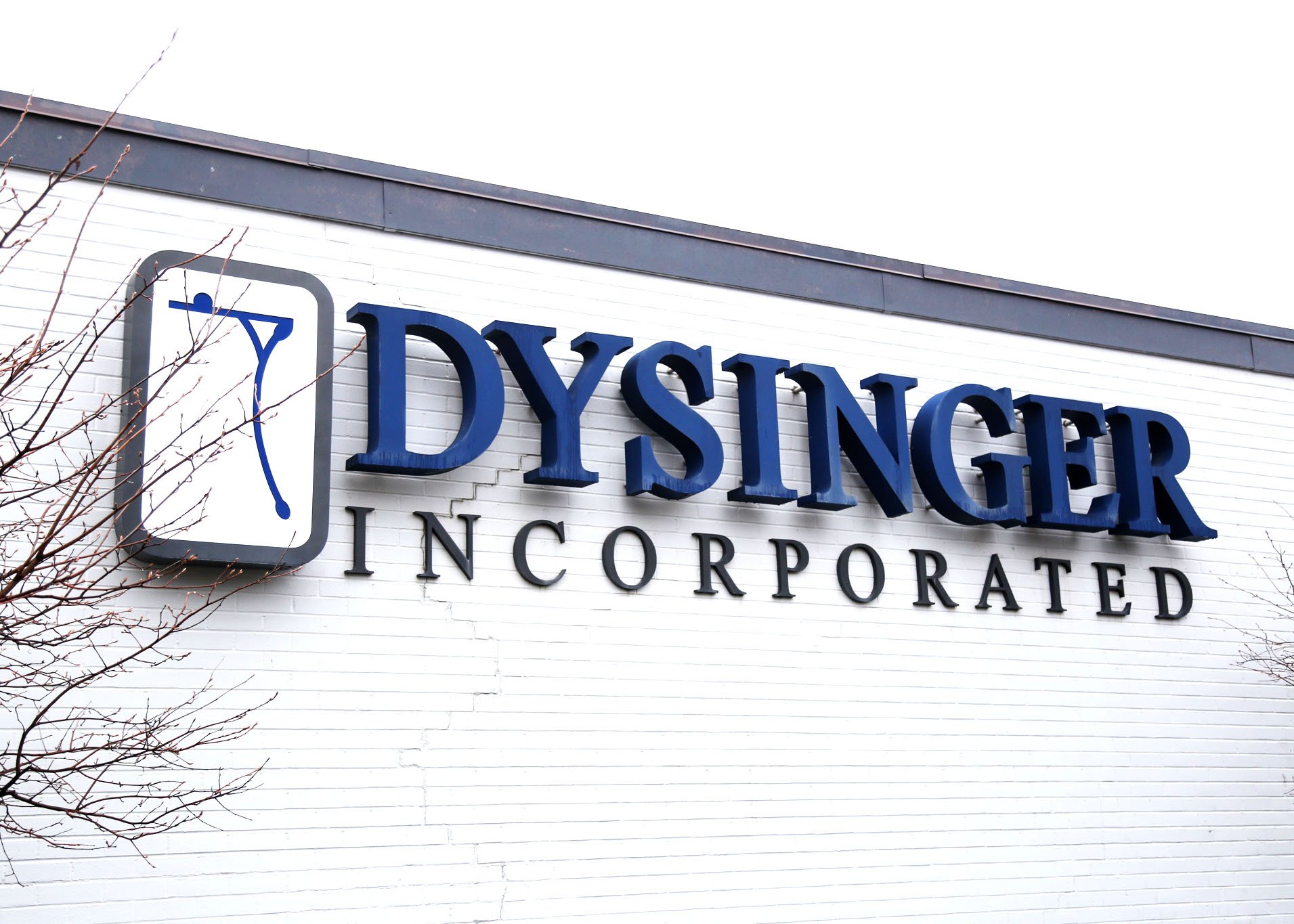
After several successful years of serving its automotive customers, the company’s leadership team decided to expand the company’s business opportunities by positioning itself as a supplier to the aerospace industry. In order to be competitive in the aerospace industry, Dysinger pursued its AS-9100 certification, a widely adopted and standardized quality management system for the aerospace industry. Dysinger was successful in achieving its AS-9100 certification in 2007, and the company has since also received its International Traffic in Arms Relations (ITAR) certification.
“It changed our culture completely,” Ian said. “We had to revamp our quality department to control and maintain certifications.” According to Ian, tolerances are more demanding in the aerospace industry and exotic materials are more difficult to cut – there is no leeway, so having the best machines with optimal productivity is a must.
As demands from both the automotive and aerospace industries continue to evolve, Dysinger’s evolution toward streamlined and enhanced production processes continued as well. The company recently made an investment in intelligent technology that helped shed light on exact machine efficiency levels.
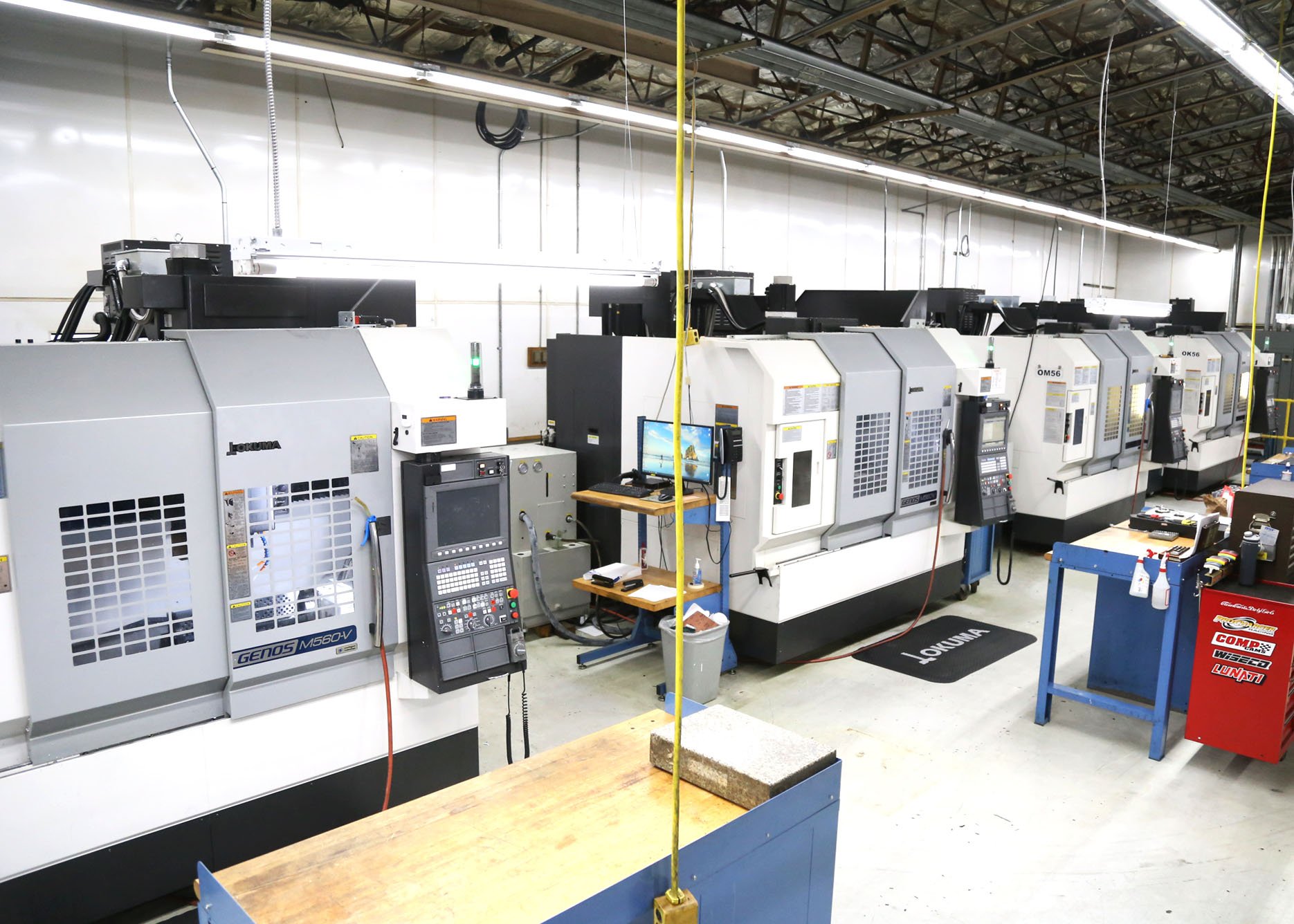
The decision to invest in Okuma’s Connect Plan started with a need for Dysinger to produce data to showcase machine investment ROI numbers to its leadership team. According to Ian, it was hard to show ROI when machines weren’t running. “We’re constantly in a setup mode rather than a run mode, and Connect Plan was a good way for us to capture the setup time versus production time.”
Okuma’s Connect Plan is a software-based system that collects machine tool data and provides detailed performance and status information that can be used to fine-tune processes and improve productivity.
Prior to taking the leap to invest in Connect Plan, Ian ran an ROI analysis to justify the investment. With the projected increased spindle hours per machine, he found that it wouldn’t take much to cover the cost of Connect Plan, and the remaining productivity would lead to increased ROI over time.
Within a month of signing their contract to purchase Connect Plan, Dysinger had Connect Plan installed, and it only took two days on-site to fully introduce Connect Plan to shop floor personnel. “The install was pretty seamless,” Ian says. “Both Okuma and Gosiger did a good job of planning up-front to let us know what hardware we needed to have installed on our server and what they needed connection-wise.”
Along with the introduction of Connect Plan, Dysinger updated their server to allow them to add multiple machines in the future. This means that as Dysinger begins to replace the legacy machine tools, they can connect any new machines they invest in down the road.

Want to learn more about Okuma’s Connect Plan and how it can benefit your shop floor like it did Dysinger’s? Download the free Connect Plan lite app from the Okuma App Store to get a sneak preview of Connect Plan’s functionality on one of your machines.
According to Ian, having access to accurate information provided by the connectivity and data provided by Connect Plan has opened doors to making efficiency improvements. “It is an eye-opener. You ask most machinists how many hours a day their spindle runs, and they think it’s 80 to 90 percent of the time, and that’s not really the case.” Ian says that Dysinger’s spindle utilization has increased about 15 percent since introducing Connect Plan to its machines, and as more machines are added, the utilization continues to increase.
In terms of profitability gains, the biggest impact has been realized through increased machine run times. Connect Plan allows operators to see shift-to-shift how many parts are produced in the span of their run cycle and dig into potential problem areas.
Beyond the improvements in machine run times, Ian says that he’s seen improvements in employee performance. “For some employees, it backs up their numbers in their reviews,” he says, as employees are able to pull their own numbers from the machine data to monitor how they’re performing. The shared information on the shop floor has enabled some to push their current numbers and continually improve.
Connect Plan also benefits Dysinger managers even when they’re not on the shop floor, allowing them to make improvements when they wouldn’t normally see opportunities. It’s been a great tool to monitor productivity on the night shift while a production manager is not on-site,” Ian says.
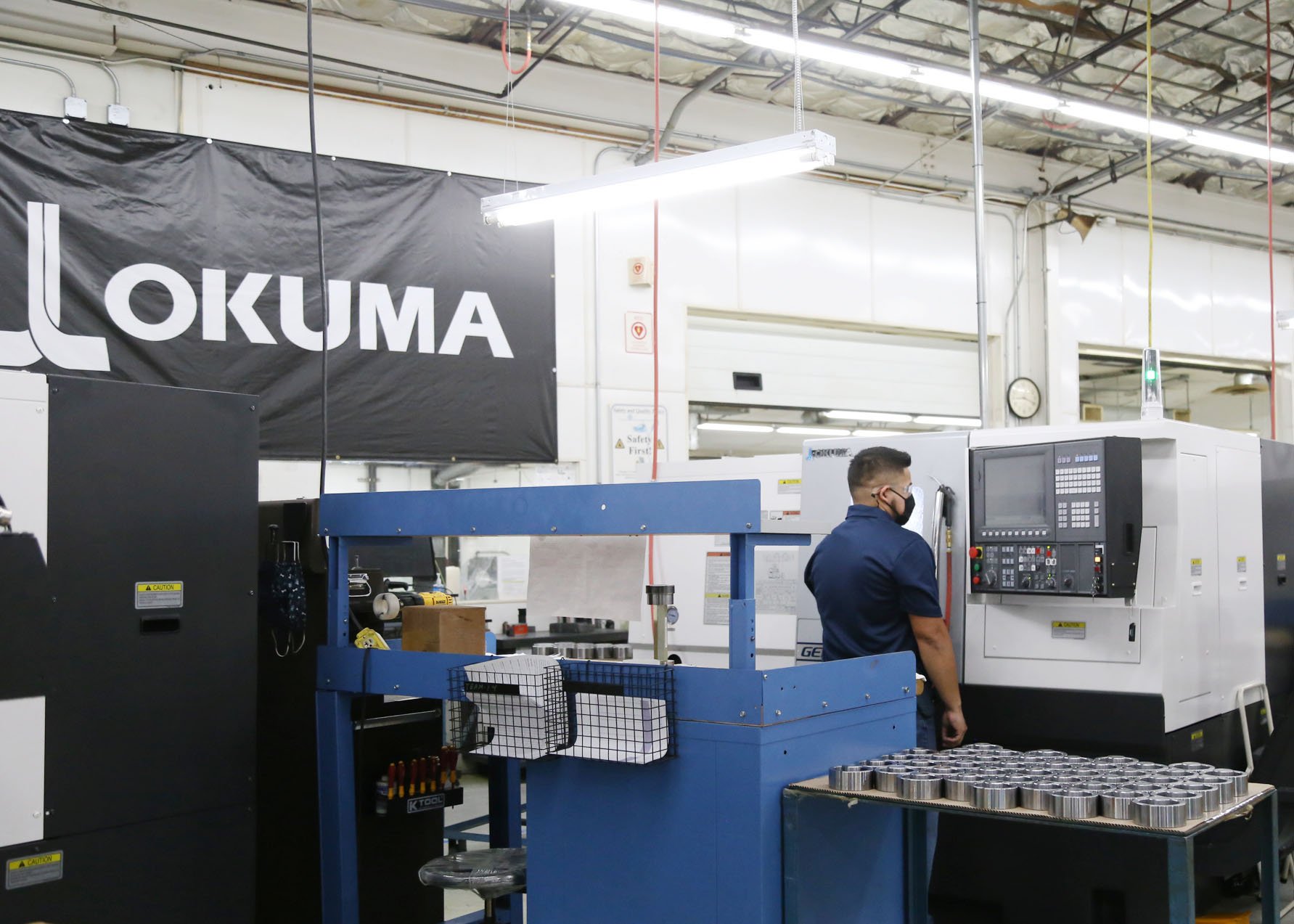
After more than 35 years of partnership with Okuma, Dysinger continues to rely on Okuma machines and technologies to drive their manufacturing processes. “It’s been a great working relationship with Okuma and our distributor Gosiger,” Ian says.
Of the 21 Okuma machines on Dysinger’s shop floor, 11 currently utilize Connect Plan, including five GENOS M560-V vertical machining centers, four GENOS L400II lathes, one GENOS L250II lathe, and one GENOS L300 twin-spindle lathe. Over the next several years, Dysinger plans to have updated machines for all their milling and turning operations, with all of those machines running Okuma Connect Plan.
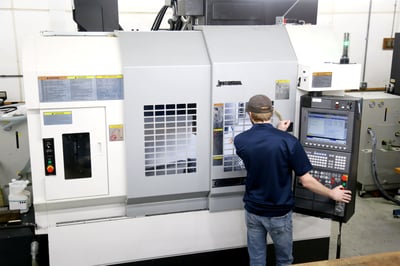
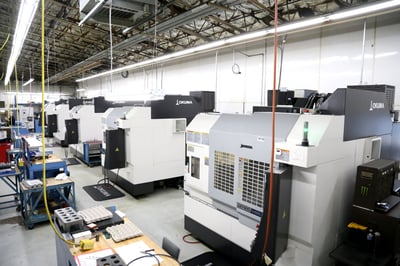
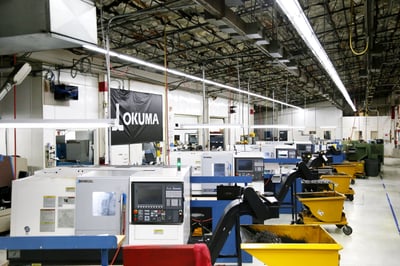
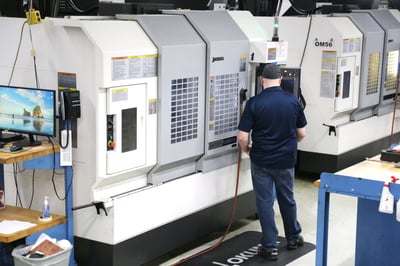
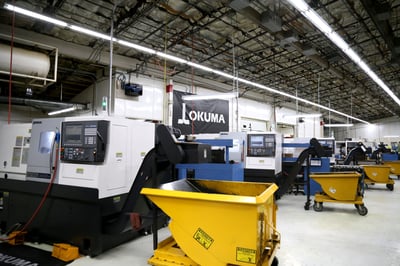
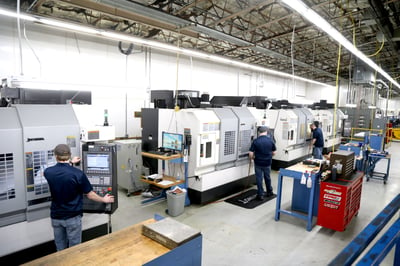
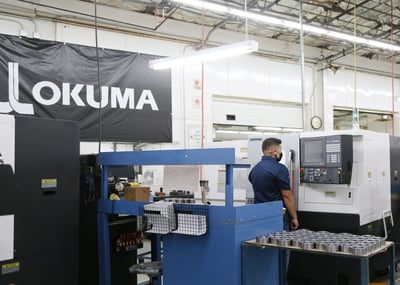
For more than 40 years, Dysinger Incorporated has been providing CNC machined parts to OEMs (original equipment manufacturers) and tier suppliers within transportation-focused industries. Discover how Okuma's Connect Plan improved their operation's efficiency and profitability.
